Plants, prisons and potential
Gardening for wellbeing in incarceration
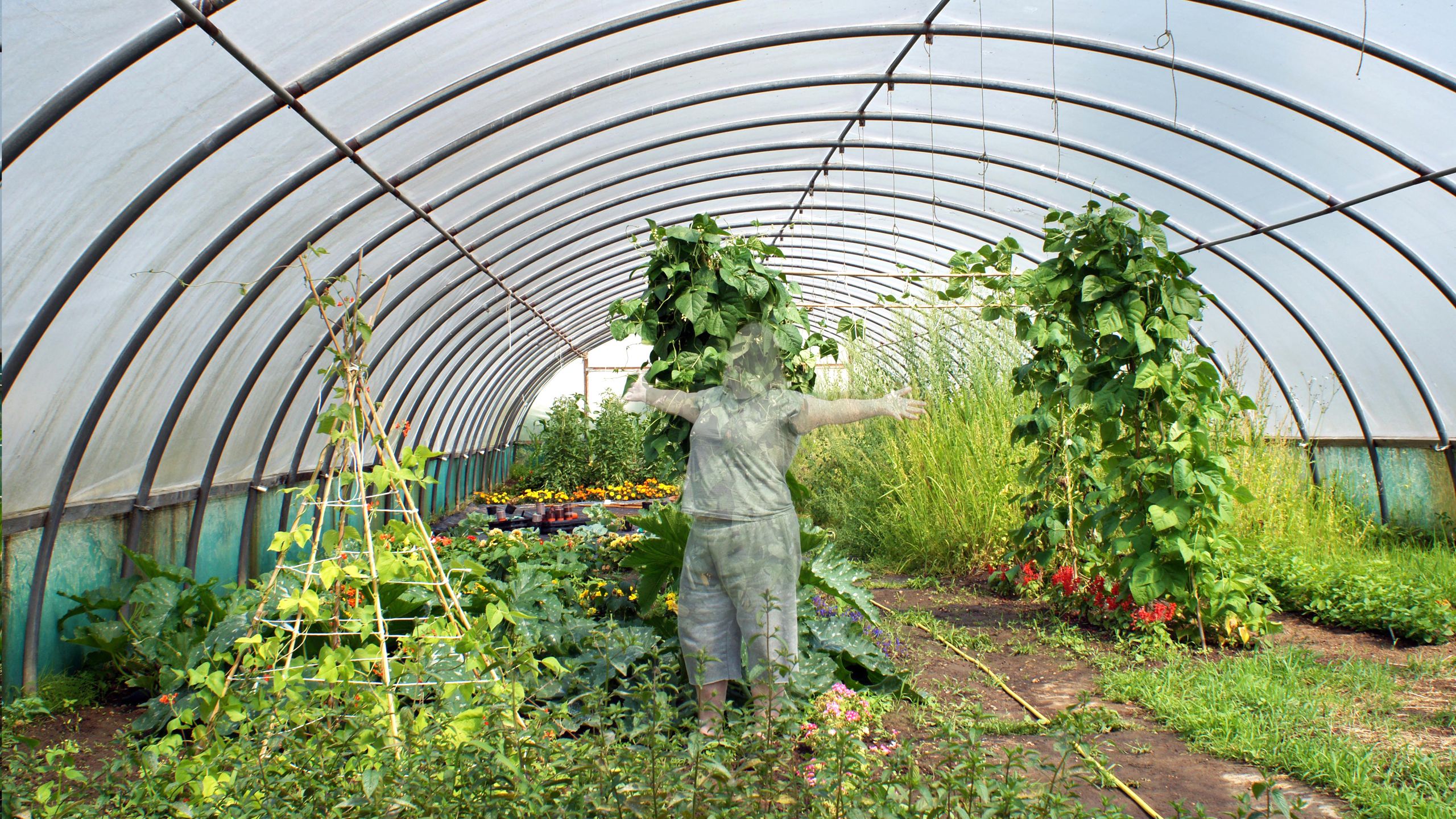
Gardens of Imagination
Artist Faye Claridge took RHS archive material into HMP Send, a women’s prison in Surrey. The collection documents how prisoners of war set up a horticultural society in Ruhleben internment camp in Germany during WW1.
Her aim: to inspire present-day women in prison to consider the role of gardening in their incarceration today.
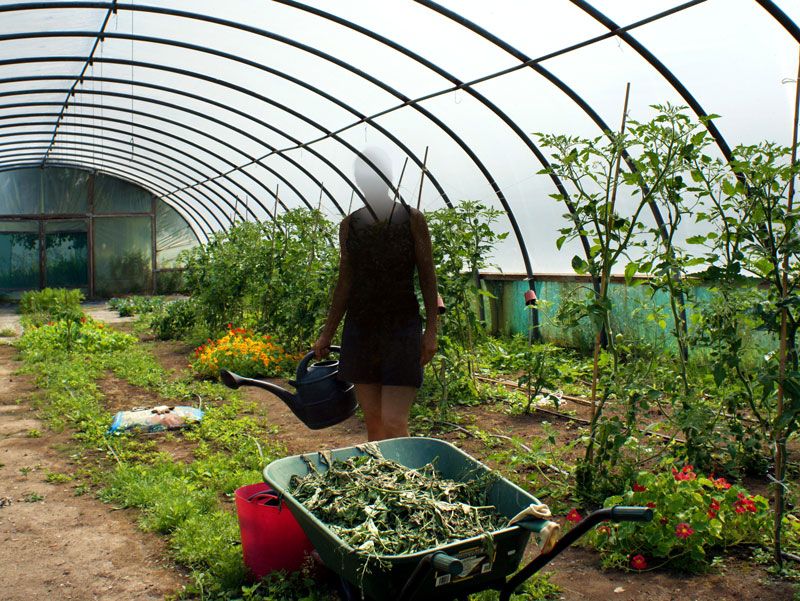
Image: Portrait of project participant in the polytunnels at HMP Send. Credit: Faye Claridge.
Image: Portrait of project participant in the polytunnels at HMP Send. Credit: Faye Claridge.
Growing in incarceration
Ruhleben was an internment camp for British Citizens set up in Germany during the First World War. With support from the RHS, the inmates of Ruhleben created a unique way of life for themselves, growing beautiful gardens in a prison camp.
The men faced considerable challenges, imprisoned for four years, cut off from loved ones, against the backdrop of a terrible war. A psychologist in the camp found that those who gardened experienced the lowest levels of stress, anxiety and depression.
Images: Prisoners of war at Ruhleben internment camp near Berlin, 1917. Credit: RHS Lindley Collections.
Inspiring creativity in prison today
For over 100 years, the RHS Lindley Library have kept the records of the Ruhleben gardeners and their remarkable story. Letters and photographs show the enormous impact that gardening had on their mental health and wellbeing.
Today, gardening is still turning lives around. At HMP Send, horticulture is an important part of the rehabilitation programme.
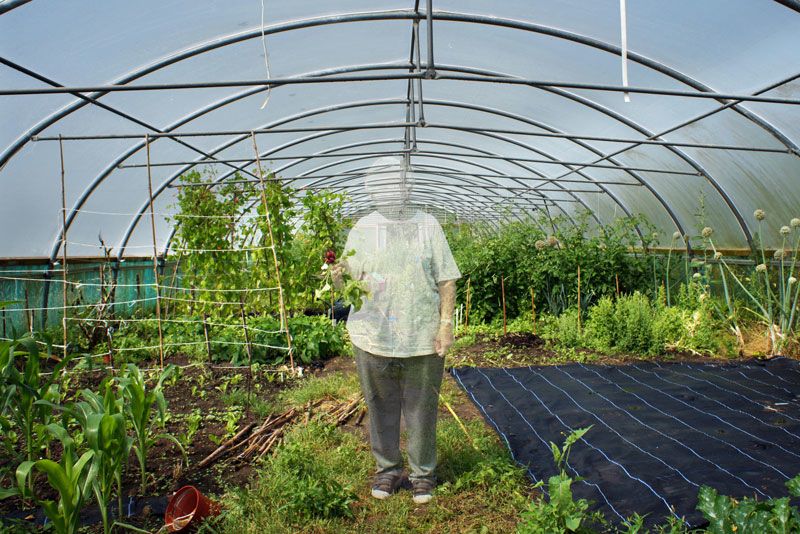
Image: Project participant in the HMP Send polytunnels. Credit: Faye Claridge.
Image: Project participant in the HMP Send polytunnels. Credit: Faye Claridge.
Prisoners at HMP Send can grow their own flowers, fruit and veg across 4.5 acres of gardens, 11 polytunnels and a glasshouse. Through gardening, they gain new skills and horticultural qualifications recognised by the RHS. It also has an important role to play in their daily wellbeing.
In the summer of 2021, women in prison at HMP Send took inspiration from the RHS Ruhleben collection to create artwork, photography and illustration reflecting their own experiences of gardening, working alongside artist Faye Claridge.
This short film tells the story of the collaboration:
Gardens of Imagination
Artist Faye Claridge took RHS archive material into HMP Send, a women’s prison in Surrey. The collection documents how prisoners of war set up a horticultural society in Ruhleben internment camp in Germany during WW1.
Her aim: to inspire present-day women in prison to consider the role of gardening in their incarceration today.

Image: Portrait of project participant in the polytunnels at HMP Send. Credit: Faye Claridge.
Image: Portrait of project participant in the polytunnels at HMP Send. Credit: Faye Claridge.
Growing in incarceration
Ruhleben was an internment camp for British Citizens set up in Germany during the First World War. With support from the RHS, the inmates of Ruhleben created a unique way of life for themselves, growing beautiful gardens in a prison camp.
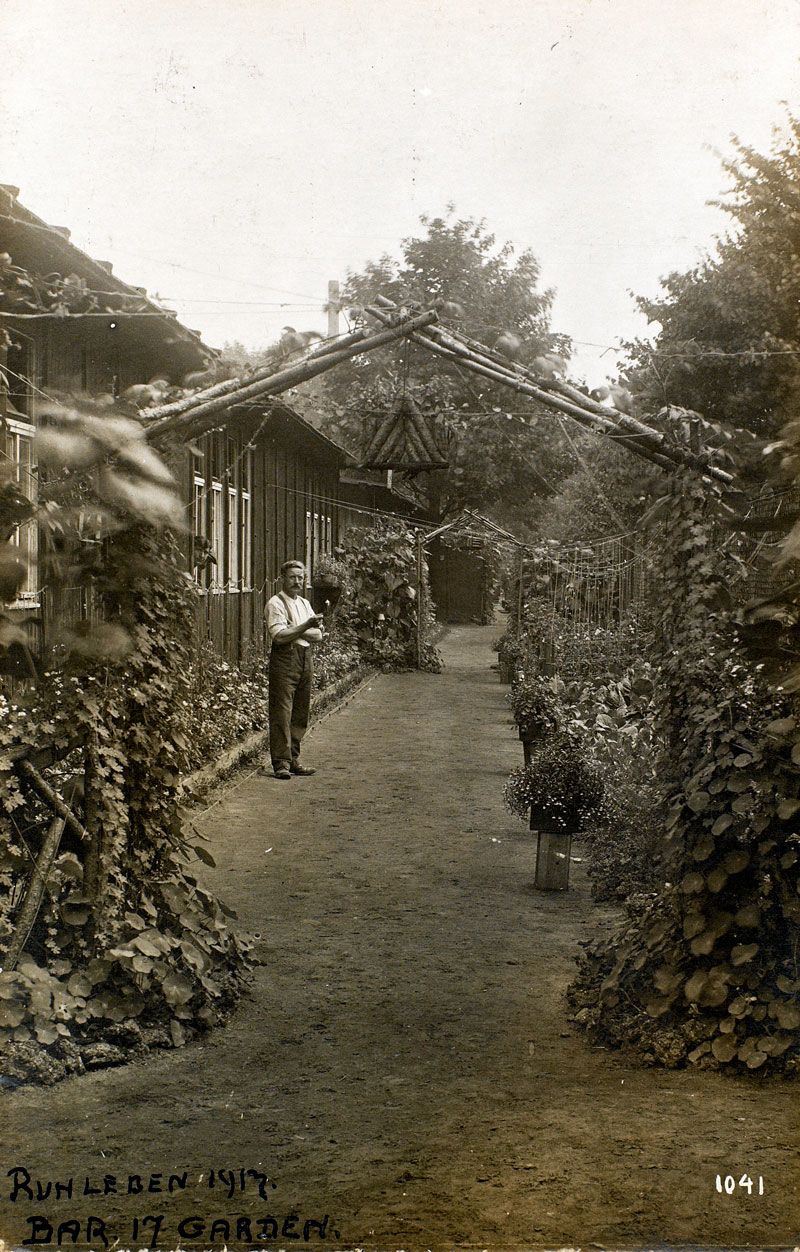
Image: Prisoner of war at Ruhleben internment camp near Berlin, 1917. Credit: RHS Lindley Collections.
Image: Prisoner of war at Ruhleben internment camp near Berlin, 1917. Credit: RHS Lindley Collections.
The men faced considerable challenges, imprisoned for four years, cut off from loved ones, against the backdrop of a terrible war. A psychologist in the camp found that those who gardened experienced the lowest levels of stress, anxiety and depression.
Inspiring creativity in prison today
For over 100 years, the RHS Lindley Library have kept the records of the Ruhleben gardeners and their remarkable story. Letters and photographs show the enormous impact that gardening had on their mental health and wellbeing.
Today, gardening is still turning lives around. At HMP Send, horticulture is an important part of the rehabilitation programme.

Image: Project participant in the HMP Send polytunnels. Credit: Faye Claridge.
Image: Project participant in the HMP Send polytunnels. Credit: Faye Claridge.
Prisoners at HMP Send can grow their own flowers, fruit and veg across 4.5 acres of gardens, 11 polytunnels and a glasshouse. Through gardening, they gain new skills and horticultural qualifications recognised by the RHS. It also has an important role to play in their daily wellbeing.
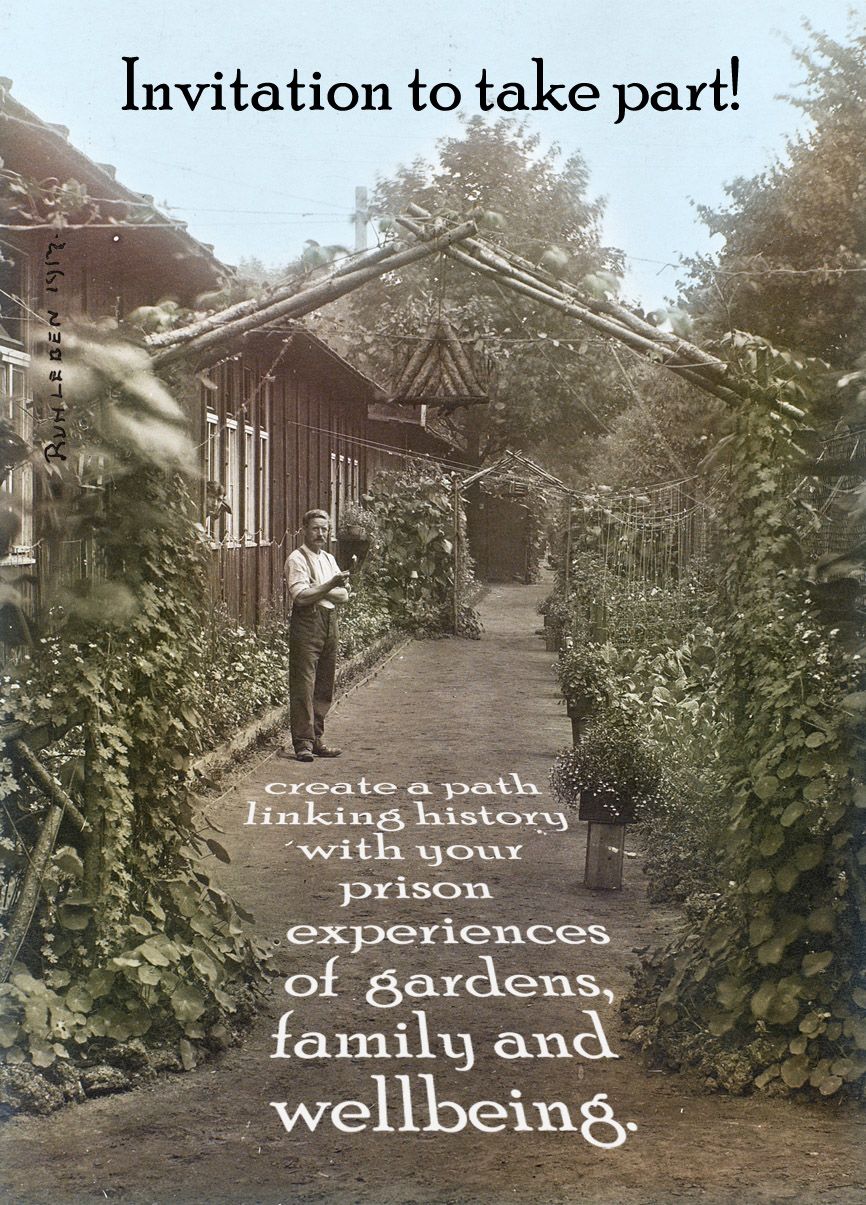
In the summer of 2021, women in prison at HMP Send took inspiration from the RHS Ruhleben collection to create artwork, photography and illustration reflecting their own experiences of gardening, working alongside artist Faye Claridge.
This short film tells the story of the collaboration:
Short film: Plants, prisons and potential: Thoughts from prison inspired by the RHS Ruhleben Collection (running time 3:52 mins)
A journey through time...
Faye used the photographs and letters from the Ruhleben archives in creative workshops in and around the prison’s polytunnels. Participants explored experiences of gardening in the past and present and its impact on wellbeing.
They also worked together on poetry, drawing, photography and illustrations, which give a moving insight into health and horticulture behind bars.
Images: Creative workshops at HMP Send. Credit: Faye Claridge.
A journey through time...
Faye used the photographs and letters from the Ruhleben archives in creative workshops in and around the prison’s polytunnels. Participants explored experiences of gardening in the past and present and its impact on wellbeing.
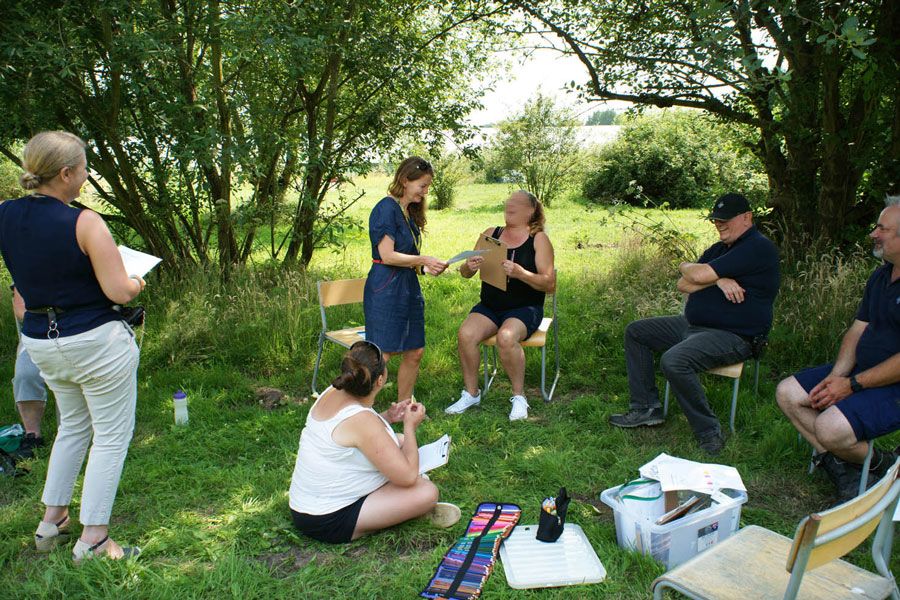
They also worked together on poetry, drawing, photography and illustrations, which give a moving insight into health and horticulture behind bars.
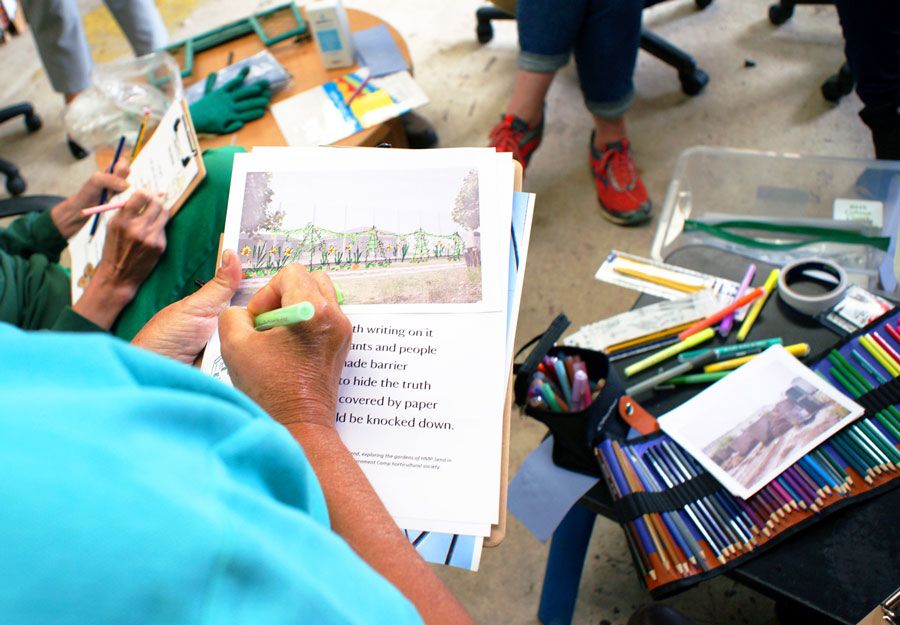
Images: Creative workshops at HMP Send. Credit: Faye Claridge.
Images: Creative workshops at HMP Send. Credit: Faye Claridge.
“All the participants have found strong connections between their prison experiences and what’s captured in the RHS archive from the internment camp... finding a shared reliance on gardening to create a sense of freedom and to distract from trauma.”
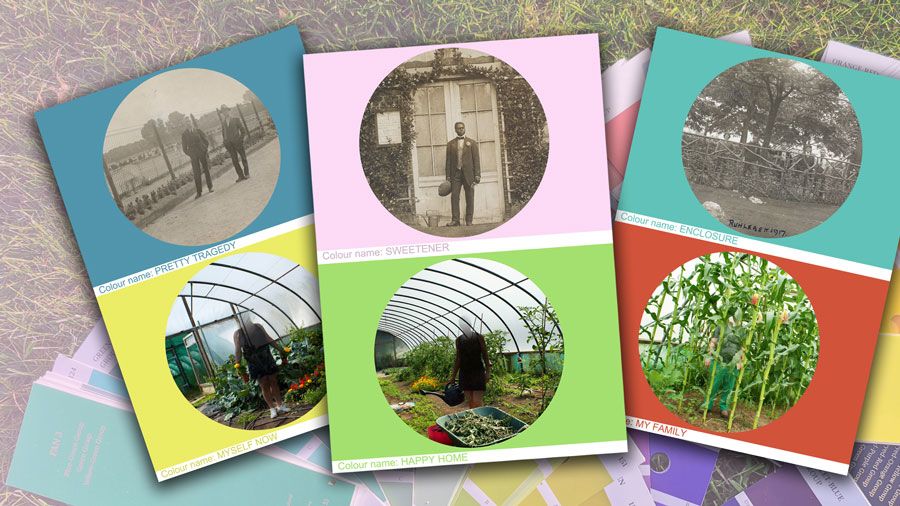
Image: Workshop exercises inspired by the RHS Colour Chart. Credit: Faye Claridge.
Image: Workshop exercises inspired by the RHS Colour Chart. Credit: Faye Claridge.
“All the participants have found strong connections between their prison experiences and what’s captured in the RHS archive from the internment camp... finding a shared reliance on gardening to create a sense of freedom and to distract from trauma.”
“The old pictures [from Ruhleben] just take me back to that time and how gentlemanly they were. It’s nice to be in the history. In the gardening they seem as free as I feel here – very proud of their work, like I am. Obviously I’d be lost without it.”
Like the WW1 photographer who was occasionally allowed into the Ruhleben camp to take photographs for prisoners to post home, Faye worked with residents at HMP Send to make portraits.
Prisoners' families are not allowed to bring in cameras during visits or to visit the prison gardens. The project portraits provided participants with a powerful way of sharing their gardening achievements and their experiences of growing in incarceration.
Explore their portraits in the gallery below.
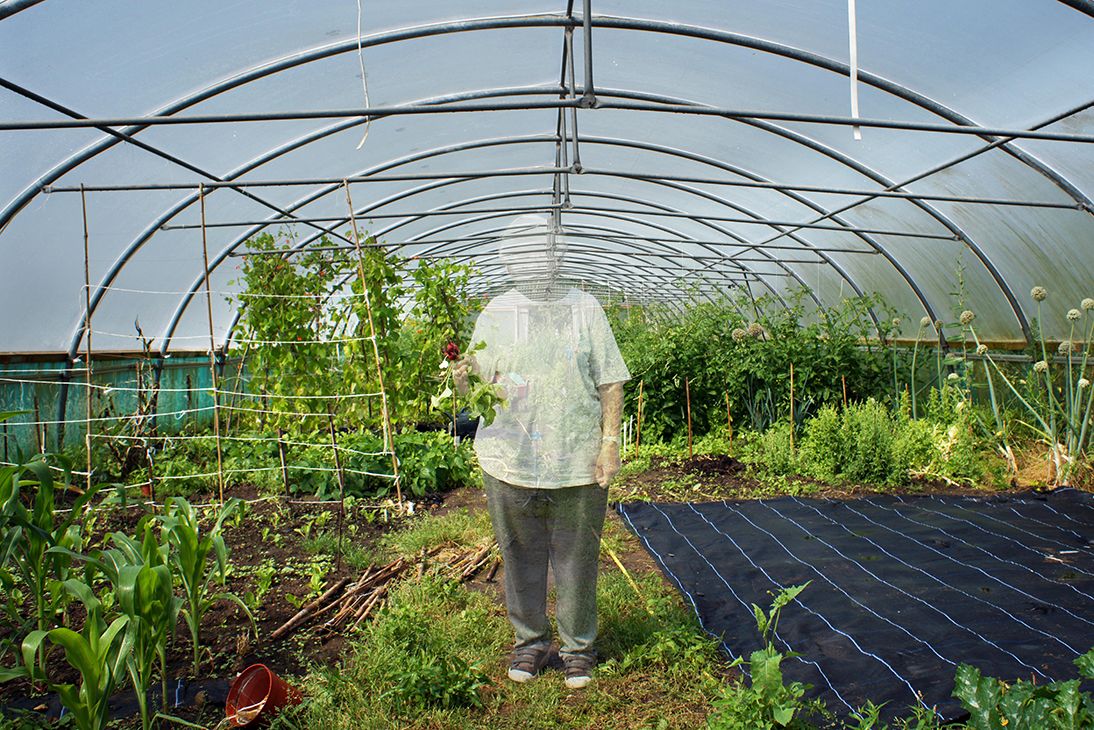
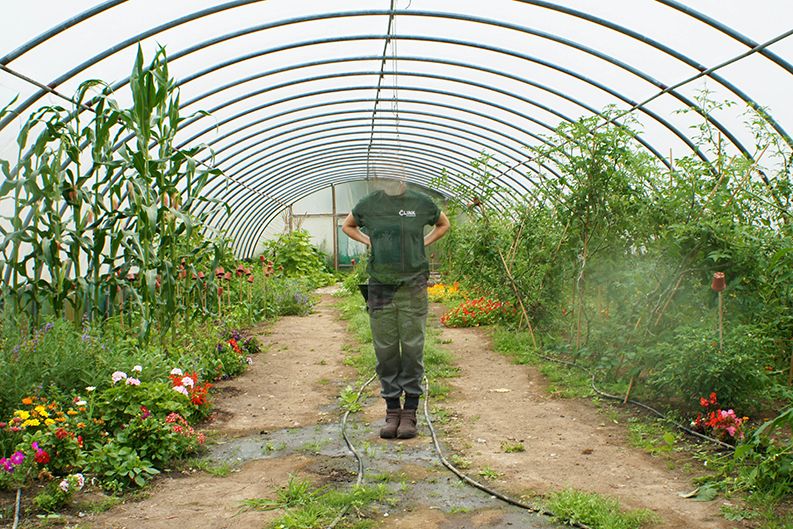
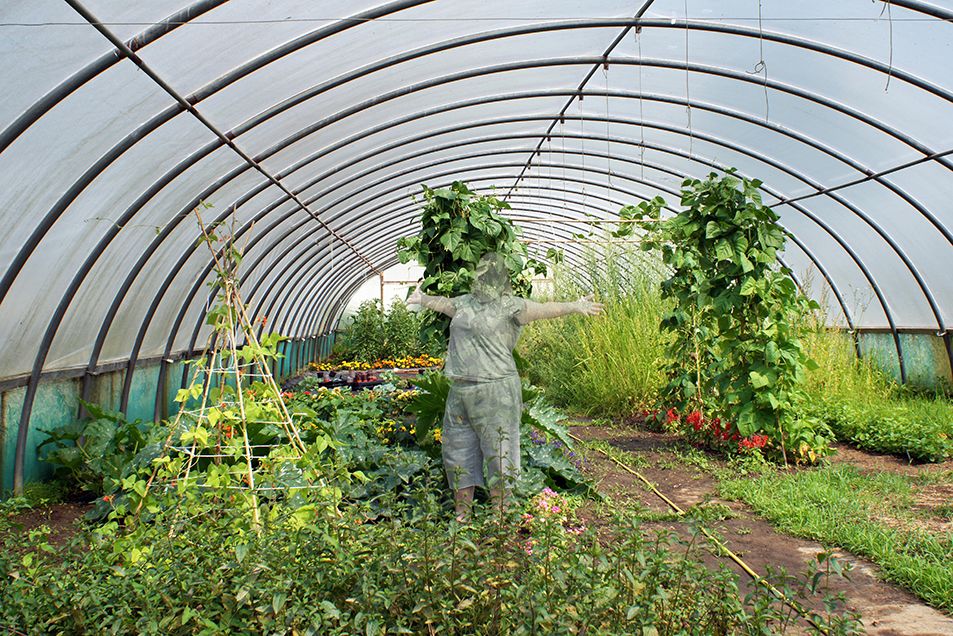
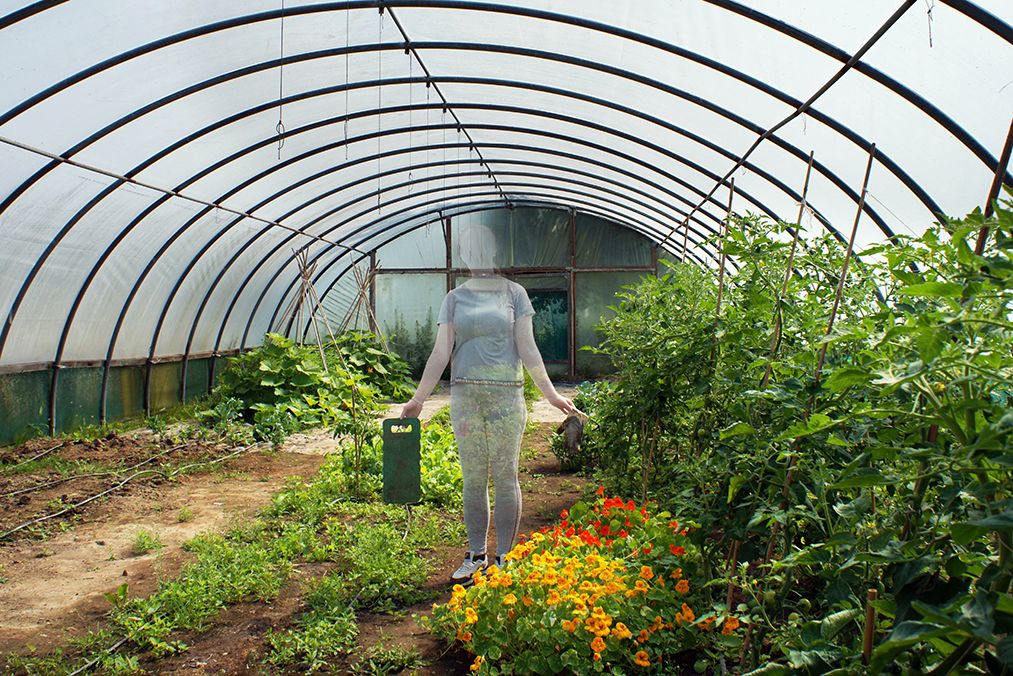
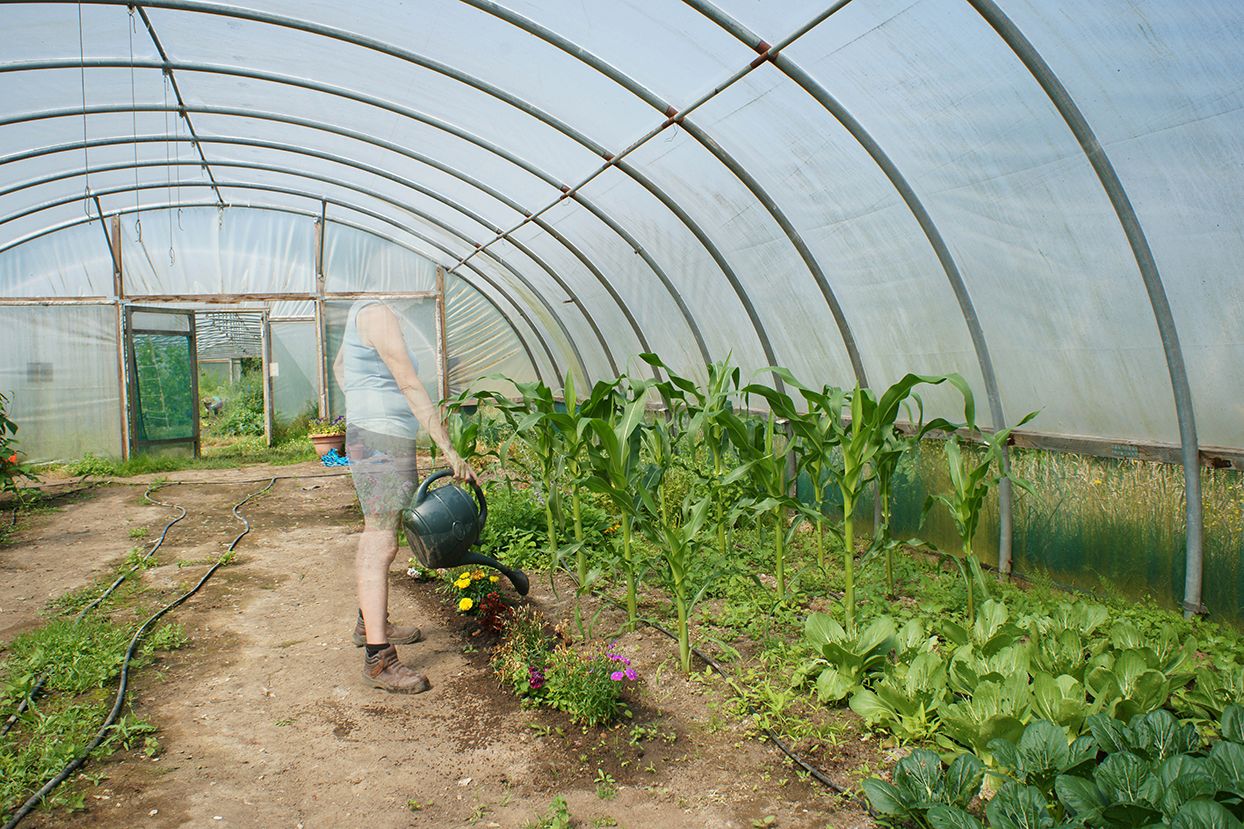
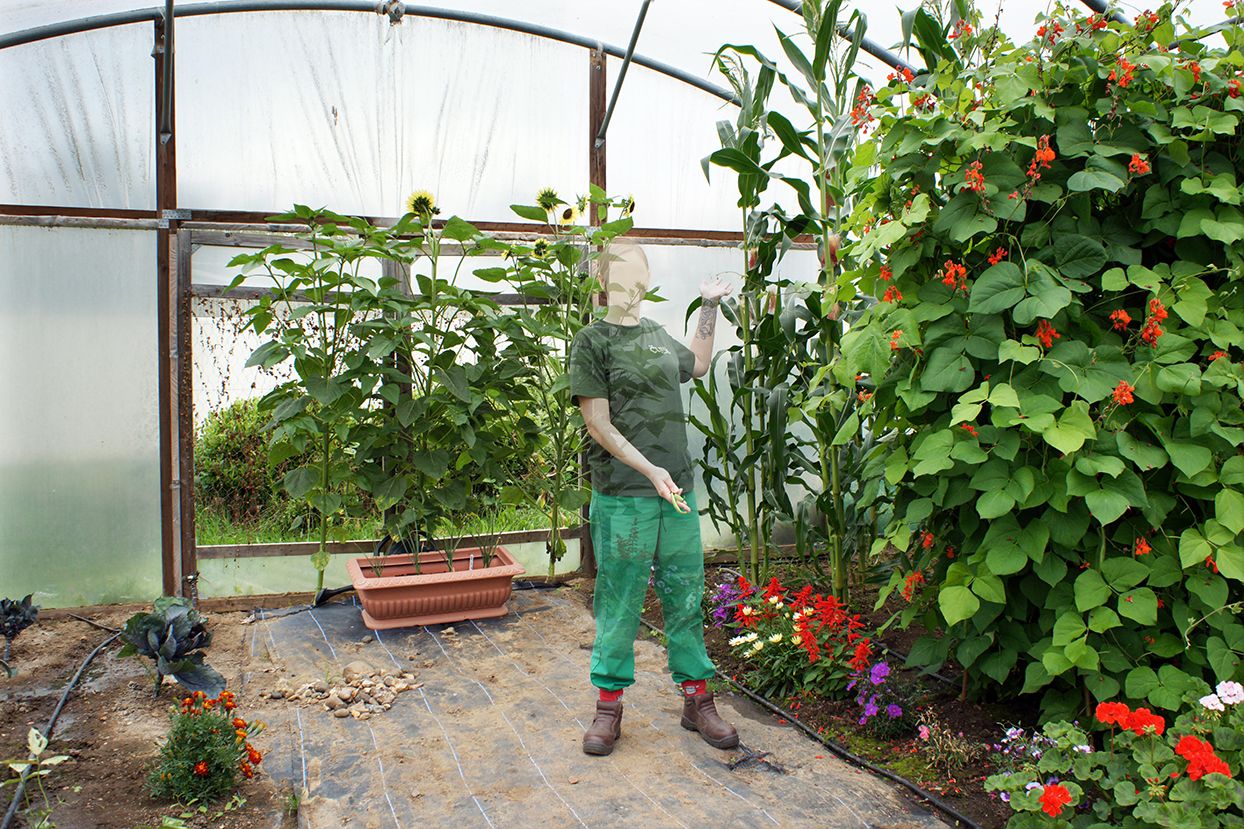
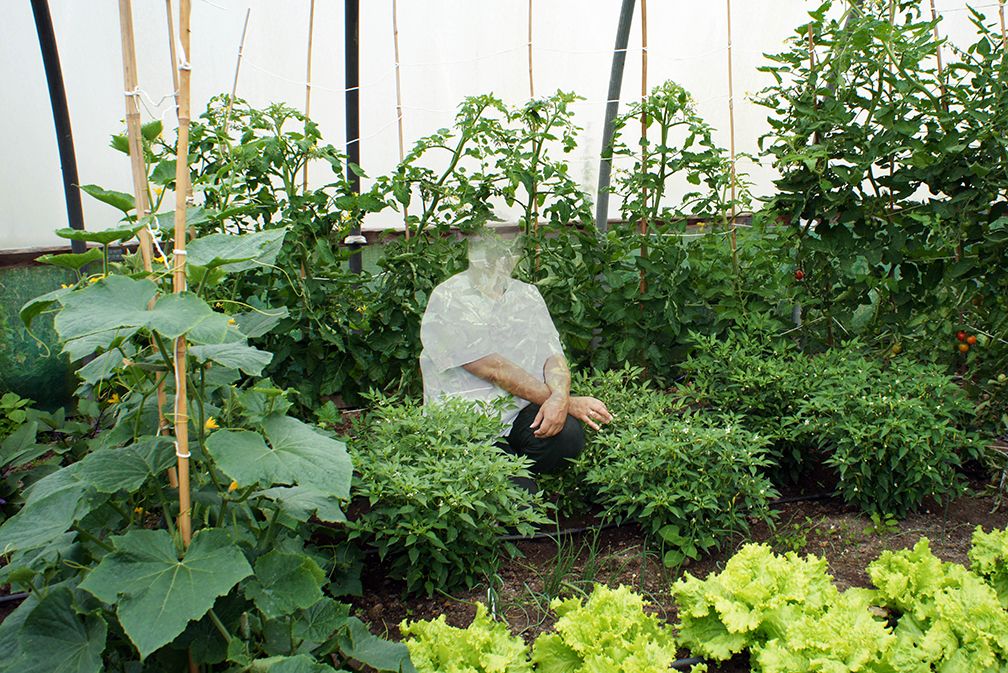
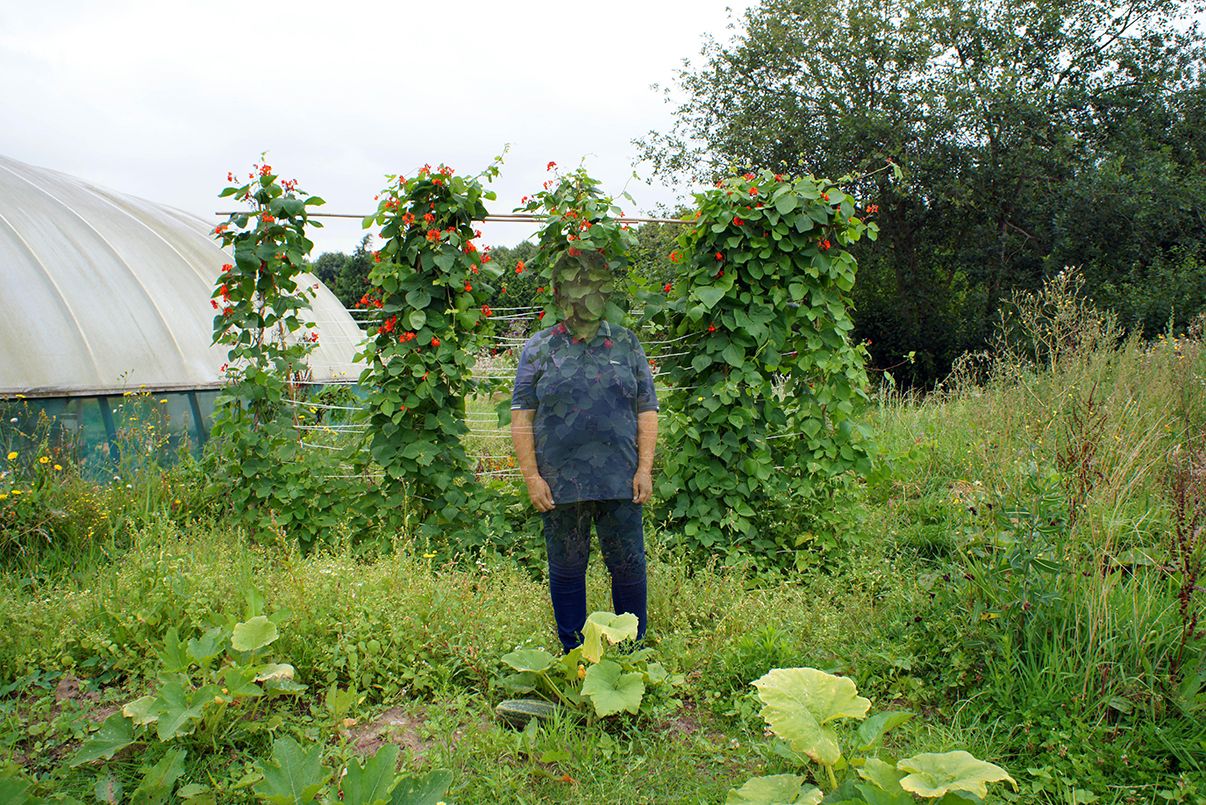
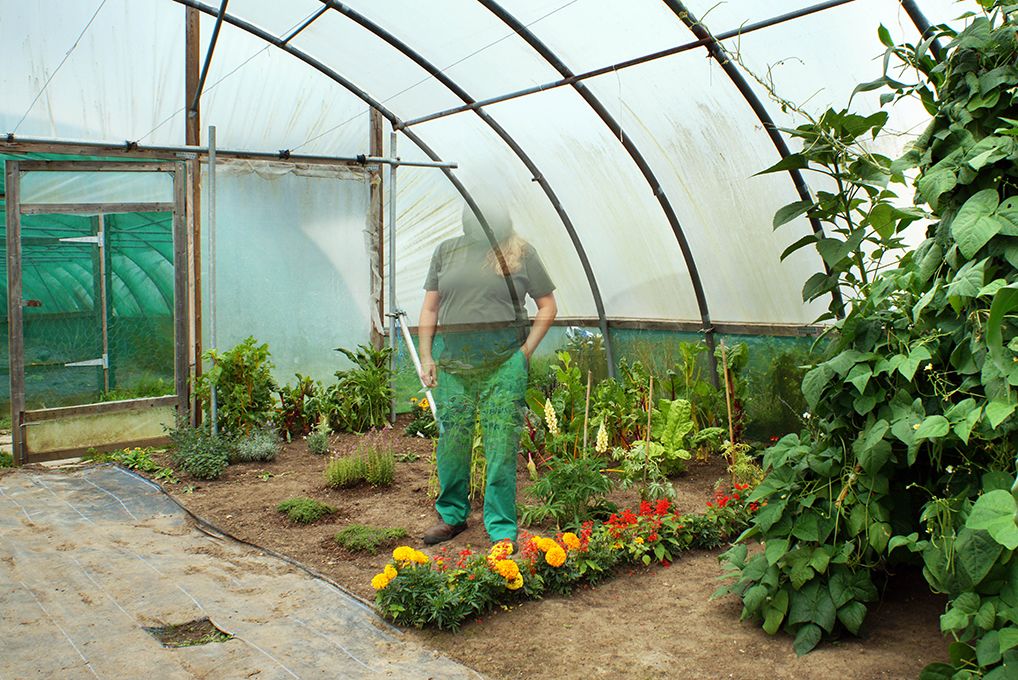

"You woke up thinking ‘I’ve got to get through another day’ and now you wake up thinking ‘ooh, I wonder how my plants are doing". Image credit: Faye Claridge
"You woke up thinking ‘I’ve got to get through another day’ and now you wake up thinking ‘ooh, I wonder how my plants are doing". Image credit: Faye Claridge

"That’s your creation, that’s your environment; it’s pretty, it’s work, it’s taking your mind off anything that’s connected to prison." Image credit: Faye Claridge
"That’s your creation, that’s your environment; it’s pretty, it’s work, it’s taking your mind off anything that’s connected to prison." Image credit: Faye Claridge

"Every time something grows, to me it’s like magic... When I come down here everything goes: prison, food, not seeing my family. I can just lose myself in it." Image credit: Faye Claridge
"Every time something grows, to me it’s like magic... When I come down here everything goes: prison, food, not seeing my family. I can just lose myself in it." Image credit: Faye Claridge

“Even small improvements show motivation and positivity as a person. In a difficult situation I’ve tried to do things that are positive to make myself feel better and try to improve my surroundings.” Image credit: Faye Claridge
“Even small improvements show motivation and positivity as a person. In a difficult situation I’ve tried to do things that are positive to make myself feel better and try to improve my surroundings.” Image credit: Faye Claridge

"I’ve started to really think outside the box and change my perceptions on everything and gardening most definitely helps that." Image credit: Faye Claridge
"I’ve started to really think outside the box and change my perceptions on everything and gardening most definitely helps that." Image credit: Faye Claridge

"My polytunnel is my little bit of freedom, within this tunnel I don’t feel like a prisoner." Image credit: Faye Claridge
"My polytunnel is my little bit of freedom, within this tunnel I don’t feel like a prisoner." Image credit: Faye Claridge

"I find the environment inspiring. It gives you just a different level of knowing and seeing and freedom away from the bureaucracy of day to day prison life." Image credit: Faye Claridge
"I find the environment inspiring. It gives you just a different level of knowing and seeing and freedom away from the bureaucracy of day to day prison life." Image credit: Faye Claridge

“Being down here helps my mental health... I just focus on what I’m doing down here. It feels good that I’ve got my own little thing to deal with. My patch.” Image credit: Faye Claridge
“Being down here helps my mental health... I just focus on what I’m doing down here. It feels good that I’ve got my own little thing to deal with. My patch.” Image credit: Faye Claridge

"From the life I lived outside to coming here, I’m alive now. I’m clean, off of everything for the first time in my life. I’m flourishing like my fruits!" Image credit: Faye Claridge
"From the life I lived outside to coming here, I’m alive now. I’m clean, off of everything for the first time in my life. I’m flourishing like my fruits!" Image credit: Faye Claridge
With thanks to all project participants, staff and volunteers at HMP Send @HmpSend
Faye Claridge @fayeclaridge is one of three artists engaged by the RHS in Gardens of Imagination, a research project to develop creative uses of RHS archives to connect with new audiences.
Gardens of Imagination is supported by the National Lottery Heritage Fund #NationalLotteryHeritageFund @heritagefunduk as part of the Wisley Inspiring People to Grow project.
Online display created by the RHS Lindley Library. Based at the Royal Horticultural Society’s headquarters at Vincent Square in London, the Lindley Library holds a world-class collection of horticultural books, journals and botanical art.

